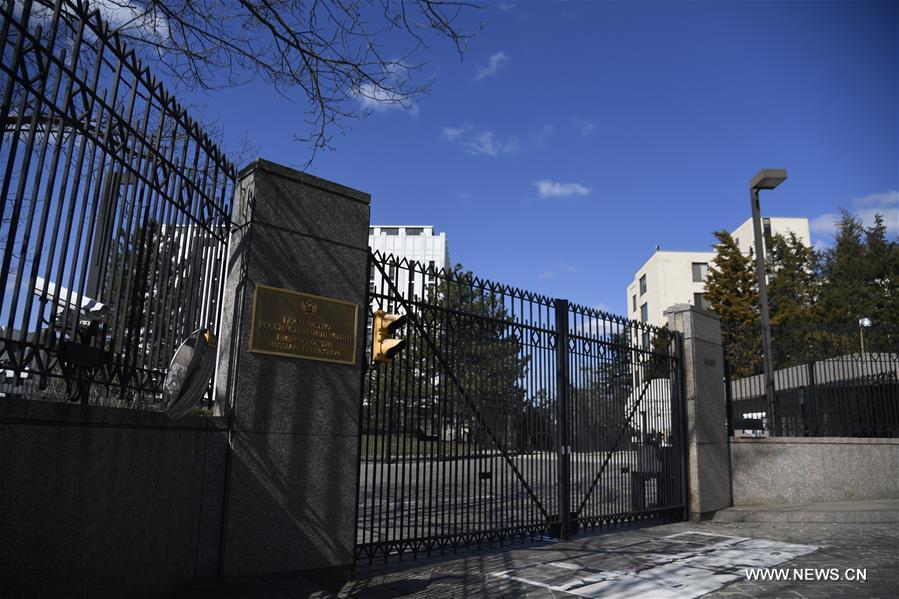The initial act of the new Cold War
- By Sumantra Maitra
 0 Comment(s)
0 Comment(s) Print
Print E-mail China.org.cn, March 31, 2018
E-mail China.org.cn, March 31, 2018

When future historians look back at the first incident of the new Cold War, they may possibly consider the botched Salisbury assassination case. The former Russian double agent survived, as did his daughter and the British policeman who found them both slumped over on a public bench, but the event initiated a ripple effect that is now developing into a tsunami. Prior to this, nations had responded independently to Russian actions, with reprisals differing from country to country. But this is perhaps the first of many concerted actions to come in a new geopolitical order.
So far, the United States has decided to expel 60 Russian diplomats, and the U.K. has expelled 27. 14 EU countries as well as Canada have also expelled diplomats in a show of solidarity. Overall, more than 100 Russians are going to be removed from Western countries in the coming week.
This is not new; the expulsion of diplomats is a tried-and-tested procedure. But this is a concerted effort, which reflects the hardening resolve of the Atlantic alliance. There are a lot of internal differences within Europe, with eastern countries being more hawkish compared to western ones. And Europe is divided with regard to the Nord stream gas pipeline, as well as sanctions on Russia. That said, Russia's favorite espionage tactic of political assassination abroad has finally backfired. Instead of exploiting divisions in the West, like during the build-up to the Iraq War, this time Russia tried to take on all of the countries at the same time, thereby uniting them together. This active interference in foreign affairs had a pronounced backlash, and Russia's plausible deniability failed.
Even more important is that, for someone who is commonly regarded as Putin's puppet, Trump is proving to be remarkably anti-Russian. The U.S. has already provided lethal arms to Ukraine, changed operational tactics in Syria which resulted in the deaths of Russian mercenaries, plotted and implemented new sanctions and expelled Russian diplomats. It is difficult to imagine this happening during the Obama years.
Unfortunately, this is probably just the start - but it needn't be. Europe doesn't need a new Cold War. There are fundamental differences between Russia and the West, and there will always be a rivalry between the great powers. But no sane European or even American wants a new Cold War. The average American from deep in the rural countryside has more in common with the average Russian than with a New York celebrity or a Hollywood actress. The same is true in Europe, where there are bigger problems facing the continent. Something urgently needs to change, or there will be further conflicts in the future. Sadly, for now, it seems that the forces of history have started to move inexorably back in time.
Sumantra Maitra is a columnist with China.org.cn. For more information please visit:
http://www.china.org.cn/opinion/SumantraMaitra.htm
Opinion articles reflect the views of their authors only, not necessarily those of China.org.cn.






Go to Forum >>0 Comment(s)